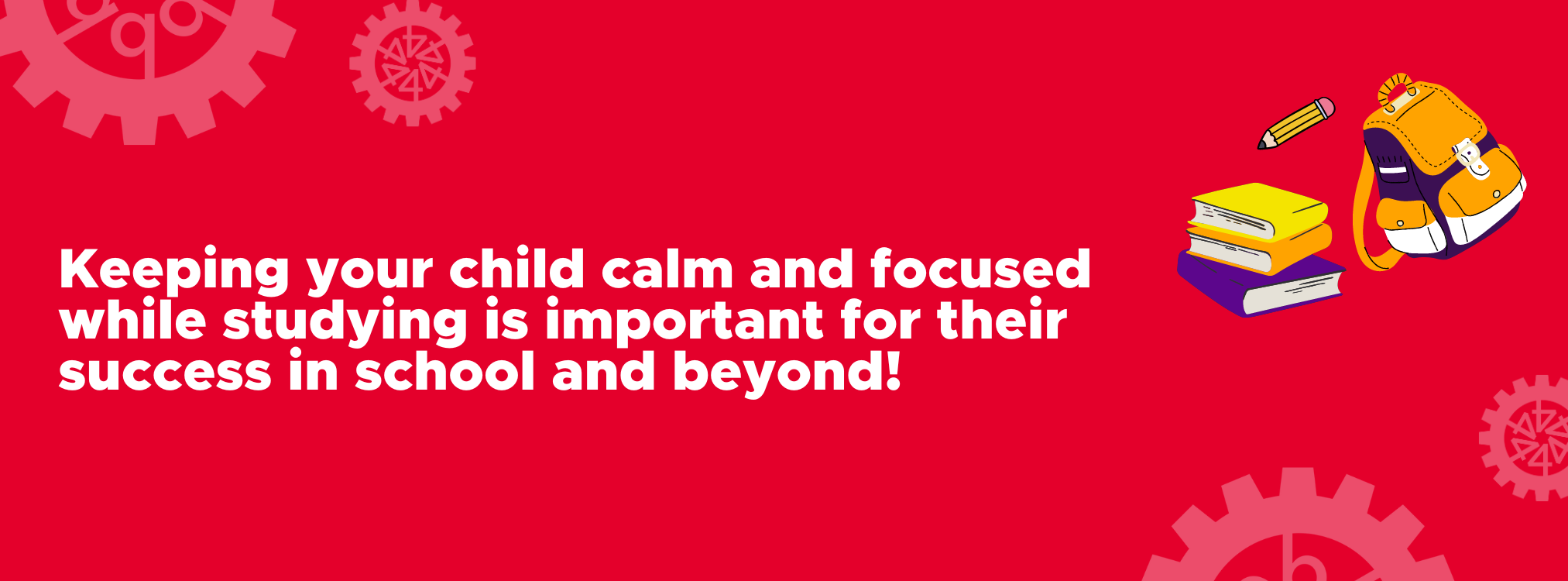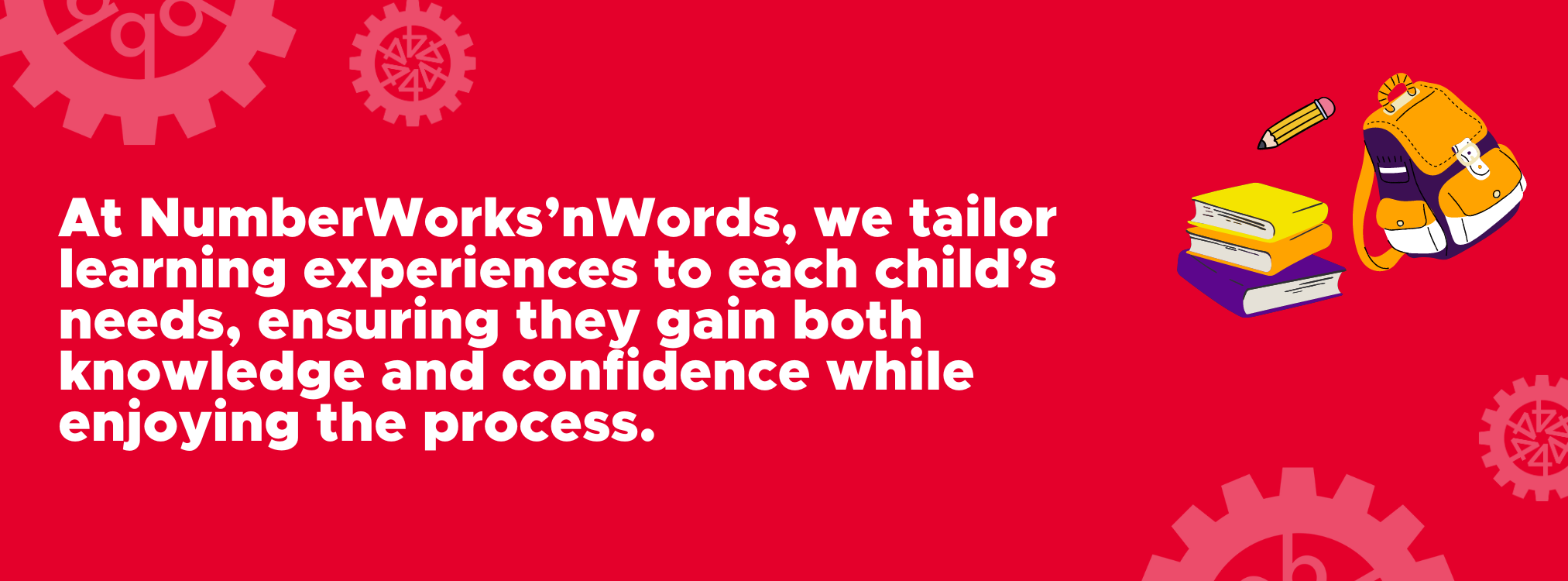Tips for Improving Your Child's Study Habits

Keeping your child calm and focused while studying is important for their success in school and beyond. Studies show that when children are relaxed, they can concentrate better, which means they’re more likely to understand and remember what they’re learning.
Schools in New Zealand are increasingly recognising the link between well-being and learning. The Ministry of Education’s Positive Behaviour for Learning (PB4L) initiative emphasises the importance of mental health in academic settings. Evidence from the PB4L programme indicates that students who experience lower levels of stress and higher levels of emotional support are more likely to achieve better academic outcomes. By fostering a calm and focused study routine at home, you align with these broader educational goals, helping your child thrive both academically and emotionally.
Here’s a guide to help your child stay on track and achieve their best.

Create a Quiet Study Haven
A quiet, dedicated space for studying can make all the difference. By providing your child with a peaceful environment away from household noise, you’re setting the stage for better concentration, much like how a performer needs a focused audience. A well-organised, clutter-free room helps your child focus on their tasks and reduces the chance of distractions. This calm setting is essential for fostering effective study habits and promoting academic success.
Understanding the Importance of a Quiet Study Space
Research has shown that a serene environment can significantly enhance focus, concentration, and retention of information. By reducing distractions, a quiet study space allows children to stay on task and complete assignments more efficiently. Moreover, such an environment promotes a sense of calm and reduces stress, leading to a more positive learning experience. Examples of quiet study spaces include libraries, study rooms, and designated quiet areas at home. These spaces provide the tranquility needed for children to thrive academically.
Remove the Distractions
Distractions can be a major obstacle to effective studying. Ensure your child’s study space is free from interruptions by turning off phone notifications, removing games, and asking other family members to respect study time. Tools called website blockers or phone apps that track and limit screen time can also help maintain their focus. Eliminating these distractions allows your child to fully engage with their work, which is crucial for retaining information and achieving their goals.
A cluttered and disorganised study space can lead to distractions and decreased productivity.
Encouraging regular breaks and physical activity can further reduce the urge to get sidetracked by digital distractions. Parents play a vital role in promoting healthy digital habits by modeling responsible behaviour and providing guidance on digital citizenship. By addressing digital distractions, children can enhance their focus and academic outcomes.
Choosing a Quiet Location
When selecting a quiet location for studying, consider factors such as noise level, lighting, and comfort. Look for places with minimal distractions, like libraries, study rooms, or even outdoor spaces. Proximity to resources, such as computers, printers, and reference materials, is also important. Evaluate the ambiance and atmosphere of the location to ensure it promotes focus and productivity.
Decluttering and Minimalism
A cluttered and disorganised study space can lead to distractions and decreased productivity. Embracing decluttering and minimalism can help create a peaceful and focused learning environment. Start by removing unnecessary items, such as papers, books, and knick-knacks. Organise essential items, like notes, textbooks, and stationery, using storage containers and labels. Establish a routine for maintaining a clutter-free study space, such as setting aside time each week to tidy up. By reducing clutter, you can minimise distractions and enhance your ability to concentrate on your studies.
Build a Consistent Routine
A structured routine provides a predictable framework for study time. Establishing specific times each day for studying helps your child build a habit, making it easier to focus and manage their workload. Consistency reduces anxiety and helps your child approach their studies with a sense of purpose and readiness, which is vital for long-term academic success. A well-structured routine can significantly improve your child's daily life and overall well-being.
Set Achievable Goals
Setting clear, achievable goals helps your child focus and track their progress. By breaking down tasks into manageable targets, you provide a sense of direction and purpose. Celebrating these small victories keeps your child motivated and reinforces positive study habits. Clear objectives also help your child understand the whole picture, meaning and purpose of what needs to be accomplished, which is essential for maintaining focus.
Mind Their Diet
A balanced diet plays a crucial role in concentration and overall cognitive function. Encourage your child to consume healthy snacks like fruits, nuts, and whole grains, while limiting sugary treats and caffeinated drinks. Staying hydrated with water is also important for maintaining focus and energy levels. A healthy diet supports cognitive function, which is essential for effective learning and academic performance.
Offer Positive Praise
Positive reinforcement can significantly impact your child’s motivation and confidence. Acknowledge their efforts and progress with genuine praise, which encourages them to continue working hard. Positive feedback helps build self-esteem and reinforces their commitment to their studies, contributing to a more positive and productive learning experience.
Be a Supportive Ally
Your child may occasionally need extra support or a listening ear. Show empathy and provide assistance when they feel overwhelmed. Your understanding and encouragement can alleviate stress and help your child feel more capable of managing their workload. A supportive approach contributes to a more positive study experience and helps your child tackle academic challenges with confidence.
Setting Boundaries with Family and Friends
Setting boundaries with family and friends is essential for maintaining a quiet and focused study space. Communicate your childs study schedule and needs to loved ones, ensuring they understand when they are available and when they need to focus. Establish clear expectations for noise levels, interruptions, and distractions. Consider using visual reminders, such as a “do not disturb” sign, to reinforce your boundaries. While it’s important to be respectful and open to compromise, prioritise your childs academic needs and goals. By setting and maintaining these boundaries, you can create a supportive environment that fosters academic success.
Play Calming Music
Background music can enhance concentration for some children. Classical or instrumental music creates a calming atmosphere that can help your child focus better and provide a mental rest during study sessions. Experiment with different types of music to find what best supports your child’s study sessions. Calming music can reduce stress and make studying a more pleasant experience.
Break It Down
Large amounts of study material can be overwhelming. Using specific phrases like 'one step at a time' or 'small steps lead to big achievements' can help in organising and managing study sessions. Encourage your child to break their study time into smaller, manageable chunks. Techniques like the Pomodoro Technique - studying for 25 minutes followed by a 5-minute break - can help maintain their focus and prevent burnout. Managing study sessions in this way makes tasks feel less daunting and helps maintain motivation.

Consider Extra Tutoring
If your child is struggling with certain subjects, additional tutoring can provide valuable help. A tutor offers personalised attention and can clarify difficult concepts, reducing feelings of overwhelm. This extra support helps your child gain a better understanding of challenging subject material, which is essential for academic success.
At NumberWorks’nWords, our dedicated team of tutors and professionals are here to help! Through one-on-one tutoring, we tailor learning experiences to each child’s needs, ensuring they gain both knowledge and confidence while enjoying the process.
With centres across New Zealand, Australia, and the United Kingdom, we’d love to hear from you. Contact us today or book a free, no-obligation assessment to get started.




